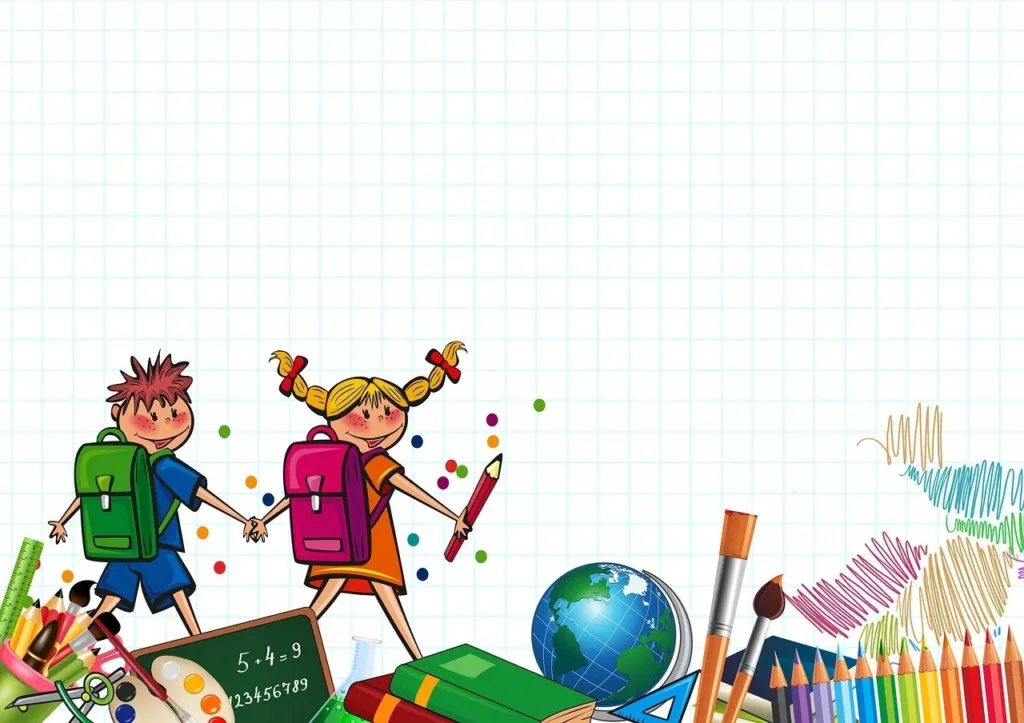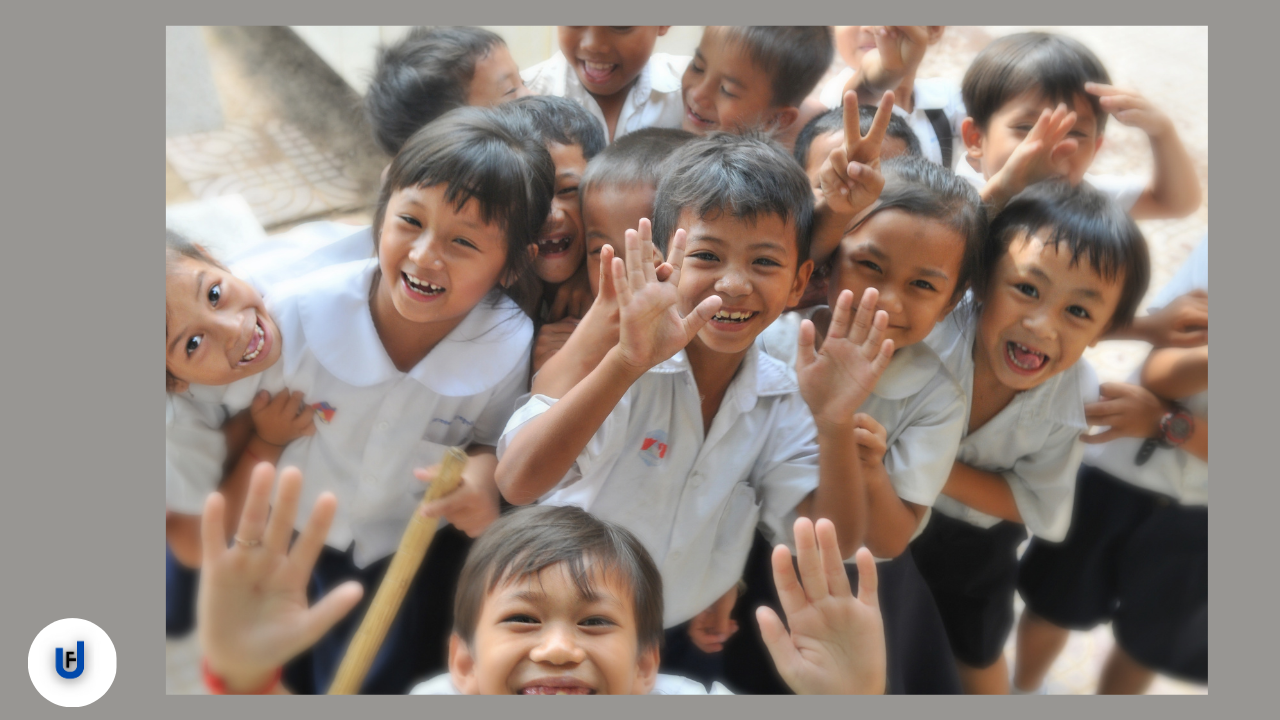
Education is a cornerstone of human development and progress. It equips individuals with knowledge, skills, and values that enable them to lead fulfilling lives and contribute to the betterment of society. In this article, we will explore the essential role of education in shaping the whole world.
Benefits of Education

1.Empowerment and personal growth:
Education empowers individuals to reach their full potential. It provides a lots of tools to think critically, make informed decisions, and adapt to a rapidly changing world. Moreover, education fosters personal growth, enabling people to discover their passions and talents, leading to a more purposeful life.
2.Social Equality:
Education is a powerful instrument for promoting social equality. It bridges gaps and promotes inclusivity by offering opportunities to people from diverse backgrounds. It is a catalyst for breaking the cycle of poverty and empowering marginalised communities to improve their circumstances.
3.Social prosperity:
A well-educated workforce is the backbone of a thriving economy. Education enhances employability and helps individuals secure higher-paying jobs. It also fuels innovation, which, in turn, drives economic growth. Countries with strong educational systems tend to experience greater economic prosperity.With the help of education countries become more powerful.
4.Global Understanding:
Education fosters global understanding and cooperation. Through the exchange of knowledge and ideas, it promotes cultural awareness and tolerance. It plays a crucial role in addressing global challenges such as climate change, poverty, and public health.Education connects the world with each other .
- Progress in science and Technology:
Education is the bedrock of scientific and technological advancements. It fuels research and development, leading to breakthroughs in various fields. From medical discoveries to space exploration, education empowers humanity to push the boundaries of knowledge and achievements.
6.Democracy and civic Engagement:
An educated citizenry is vital for a functioning democracy. Education equips individuals with the tools to participate in civic life, make informed decisions, and hold leaders accountable. It is a cornerstone of a just and democratic society.
- Environmental Awareness:
Environmental challenges require educated individuals to develop sustainable solutions. Education plays a pivotal role in raising awareness about the environment and promoting responsible stewardship of our planet.
Positive Effect of Education on Environment
1.Empowerment:
Education empowers individuals with knowledge and skills, enabling them to make informed decisions and take control of their lives. It builds self-confidence and a sense of agency.
- Economic Growth:
Education leads to higher earning potential. It equips individuals with the qualifications and skills needed for better job opportunities, which, in turn, contributes to economic prosperity. - Social Mobility:
Education provides a pathway for upward social mobility. It allows people to escape the cycle of poverty and improve their quality of life. - Progress and Creation:
Education is a driver of innovation and technological progress. It fuels research and development, leading to advancements in science, medicine, technology, and other fields. - Global Understanding:
Education fosters cultural awareness and tolerance. It promotes cross-cultural understanding, which is crucial in an interconnected world. - Health :
Educated individuals tend to make healthier lifestyle choices and have better access to healthcare information, leading to improved health outcomes. - Social Cohesion:
Education encourages a sense of social responsibility and civic engagement. Informed and educated citizens are more likely to participate in their communities and contribute to the greater good. - Reduction of Inequality:
Education is a tool for reducing income inequality and promoting social justice. It equips people with the skills to compete on a more level playing field. - Good Governance and democracy:
An educated populace is essential for the functioning of democracy. Education enables people to understand political processes and engage in informed decision-making. - Environmental Awareness:
Education raises awareness about environmental issues and sustainability. It encourages responsible behaviour and environmental conservation. - Cultural preservation:
Education helps preserve and pass on cultural heritage, traditions, and languages from one generation to the other. - Personal Fulfilment:
Education not only enhances career opportunities but also enriches personal lives by fostering critical thinking, creativity, and a lifelong love of learning.
In Short , education is a fundamental driver of personal development, societal progress, and global advancement. Its positive effects are far-reaching and have the potential to shape a more equitable, prosperous, and sustainable future for all.
Negative effects of education

Education has numerous positive effects, it is essential to acknowledge that it can also have negative consequences or challenges associated with it. Here are some potential negative effects of education.
1.Pressure and stress:
The pursuit of academic excellence can sometimes lead to high levels of stress and pressure among students. This can result in anxiety, depression, and other mental health problems.
- Anxiety and competition:
Education systems that emphasise competition can create anxiety among students to perform well, often at the expense of their well-being and mental health. - Standardisation :
Overemphasis on standardised testing and curricula can stifle creativity and critical thinking. It may lead to a one-size-fits-all approach that does not cater to individual learning styles.
4.Educational Disparities:
Education can perpetuate existing social and economic inequalities. Unequal access to quality education can further marginalised disadvantaged communities.
- High costs:
In many countries, the cost of higher education can lead to significant student debt. This financial burden can limit opportunities and hinder personal financial stability. - Overemphasis on Grade:
An excessive focus on grades and academic performance can undermine the joy of learning for its own sake. Students may prioritise grades over a genuine understanding of the subject matter. - Narrowing of Interest:
Specialisation in a particular field may lead to a narrow focus, limiting exposure to other areas of knowledge and potentially stifling creativity. - Social Pressure:
Education can sometimes perpetuate social norms and expectations, limiting individual choices and career options. It may lead to social pressure. - Outdated Curriculum:
Some education systems use outdated curricula that do not adequately prepare students for the rapidly changing job market or address current societal challenges. - Bureaucracy:
Educational institutions can sometimes become bureaucratic and inflexible, hindering innovation and adaptability to new teaching methods and technologies. - Teacher Burnout:
Educators often face high levels of stress and burnout due to heavy workloads, administrative demands, and challenges in managing diverse classrooms. - Rote Learning:
In many systems, rote learning may prevail, encouraging memorization rather than critical thinking or problem-solving skills.
It’s important to recognize these negative effects of education and work toward creating educational systems that mitigate these issues while emphasising the positive impacts of learning and personal development. Education should aim to strike a balance between academic achievement and holistic well-being.
Important of Education
Safety Against Crime:
The chances of an educated person getting involved in crime or criminal acts are very low. An educated person is well aware of his/ her surroundings and is less susceptible to getting cheated .
Women Empowerment:
The empowerment of women is an essential pillar to optimise the good functioning of our society and nation as a whole. We can break old customs like child marriage, sati, dowry, etc.only by educating the men and women of our nation. The fundamental right of Right to Freedom and Expression can only be achieved if the women of our country are educated and empowered. We can win the fight against the many social evils.
Removing Poverty:
Education is pivotal in removing poverty from our society and our country. The clutches of poverty are very harsh and one of the main factors behind all the problems of our society. If a person is well educated, he/she can get a good job and earn money to sustain his/ her family and become stable.
Preventing War and Terrorism:
Education teaches everyone the importance of peace and brotherhood. The importance of staying united and spreading love is the need of the hour. To achieve world peace and prevent war and terrorism, education is important.
Maintain Law:
A good political ideology can only be developed if the citizens of our country are educated and taught the importance of following and respecting the law and order of our country. Law-abiding citizens contribute majorly to improving and sustaining the law and order of the country and the whole world.
Conclusion:
Education is not just a process of acquiring knowledge; it is a transformative force that shapes individuals, societies, and the world at large. It empowers people, promotes social equality, drives economic growth, fosters global cooperation, fuels innovation, strengthens democracy, and supports environmental sustainability. As we continue to navigate an ever-changing world, the importance of education remains paramount in building a brighter future for all.Education has a multitude of positive effects that extend to individuals, societies, and the whole world .
FAQ,
Here are some questions and answers related to education.
1.What is the importance of early childhood education?
Ans. Early childhood education is crucial as it lays the foundation for a child’s lifelong learning. It helps develop social, cognitive, and emotional skills, setting the stage for academic success and personal growth.
2.What are the key differences between traditional classroom education and online learning?
Ans. Traditional classroom education involves face-to-face interactions, while online learning is often remote and technology-dependent. Each has its advantages and disadvantages, with online learning offering flexibility but lacking in-person social interaction.
3.How can we address educational disparities and ensure equal access to quality education?
Ans. Addressing educational disparities involves equitable funding, improved resources in underserved communities, and inclusive teaching practices. Policies that reduce socioeconomic and racial inequalities are also essential.
4.What is the role of teachers in modern education?
Ans. Teachers play a pivotal role in modern education. They facilitate learning, provide guidance, and create a supportive learning environment. They must adapt to evolving teaching methods and technologies.
5.Why is lifelong learning important, and how can adults pursue it?
Ans. Lifelong learning is crucial for personal and professional development in an ever-changing world. Adults can pursue it through online courses, workshops, self-study, and by staying curious and open to new experiences.
6.How does technology impact education, and what are its potential benefits and drawbacks?
Ans. Technology in education can enhance access to resources, personalised learning, and engagement. However, it can also create distractions, privacy concerns, and a digital divide if not implemented thoughtfully.
7.What is the significance of critical thinking in education?
Ans. Critical thinking is essential as it encourages students to analyse, evaluate, and solve problems independently. It fosters a deeper understanding of subjects and equips individuals with valuable life skills.
8.How can parents support their children’s education at home?
Ans. Parents can support their children’s education by creating a conducive learning environment, showing interest in their studies, providing resources, and fostering a love for learning through discussions and activities.
9.What is the role of standardised testing in education, and are there alternatives to it?
Ans. Standardised testing assesses student performance, but it has limitations. Some alternatives include project-based assessments, portfolios, and competency-based evaluations, which offer a more comprehensive view of a student’s abilities.
10.How can education be adapted to meet the needs of diverse learners, including those with special needs?
Ans. Inclusive education practices, differentiated instruction, and individualised learning plans can be used to accommodate diverse learners, ensuring that each student’s unique needs are met.
